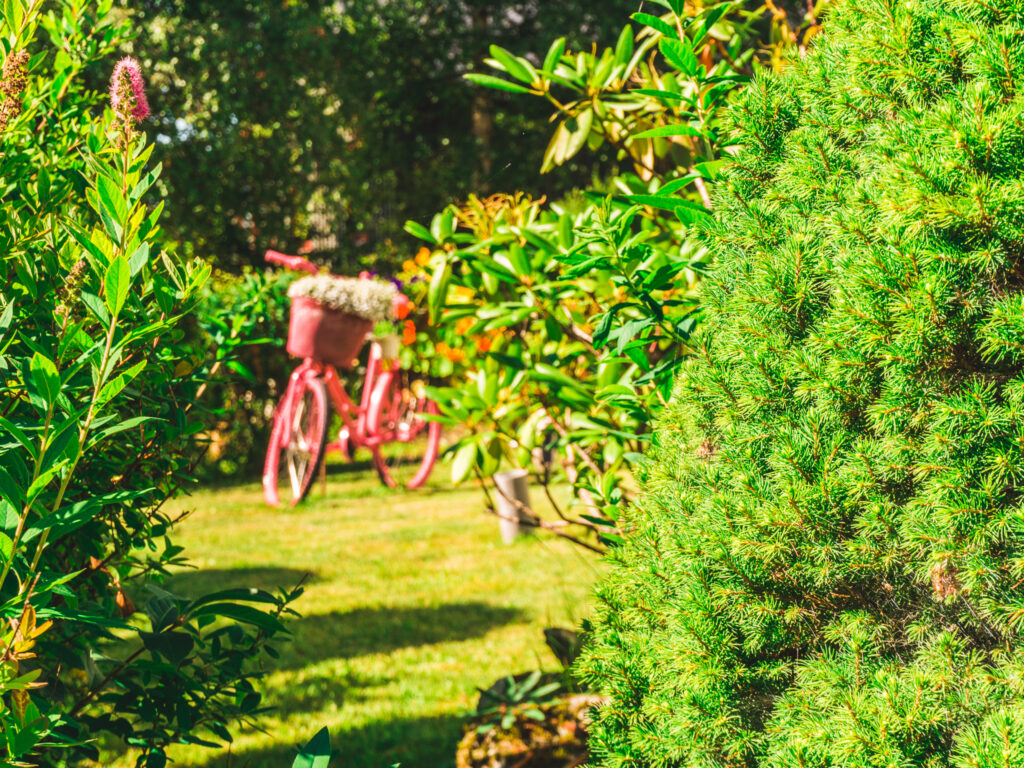(Or how to be a freaking awesome 150 year old human)
Today I am going to talk about death. And even though it sounds morbid, there is another type of death I want to write about. BTW: Being born is a safe way to die.
People are born, live their lives and die. Some die in accidents, others by disease. Still others take their own lives, but most die of what we call age-related diseases.
Now the WHO has decided that age is a disease. What this means in practice is that one can go to his doctor and ask for treatment for the “disease” age.
Table of content
- Why we age and why we do not have to
- We die of this illnesses
- War and conflict
- Tuberculosis, HIV, suicide and malaria
- What about the corona?
- Dementia
- Death in perspective
- Some die prematurely
- Fewer and fewer people die from infectious diseases
- Livespan
- Old age is a disease that can be cured
- Why do we get older?
- How to change the way we think about aging?
- Why we do not need to get older
- How does this help slow down aging?
- How to cure diseases once and for all
- Talking about drugs
- Sources
Why we age and why we do not have to
I will tell you about a man who has researched age for a number of years and through his research has become both world famous and an advocate for a healthier life. He created a furore when he boldly stated that the person who would pass 150 years had already been born.
But first, what do people die of?
We die of this illnesses
Every day, about 150,000 people in the world die.
Nearly 50,000 of them die of cardiovascular disease. Just over 25,000 die of cancer.
But what do the 75,000 others die of – apart from the around 4,000 who now die of covid-19?
War and conflict
First something you hear a lot about in the media: war and conflict, terrorism and natural disasters.
Few people in the world pass away because of this.
Only 25 people die daily in a natural disaster. Terrorism kills around 70 people daily. War / conflict costs an average of 350 lives every day. (Even though things has changed lately.)
Tuberculosis, HIV, suicide and malaria
Four other causes of death we can also do a lot to prevent – and perhaps easier and much cheaper – are tuberculosis (over 3000 dead every day), HIV / AIDS (about 2600 dead), suicide (about 2200 dead) and malaria (about 1700 dead ).
We do not hear much about these causes of death, although many more die from them than from war, terror and natural disasters. This in turn affects the priorities of politicians and other decision-makers.
(The tuberculosis bacterium kills ten times as many people in the world as war and conflict. Around two million die each year from this bacterial disease.)
What about the corona?
If you put the number of deaths in the world in perspective, you will discover that so far there are more than twice as many deaths from covid-19 (since covid started) as there are deaths in the world during a normal day (150,000 people). Many people who die of covid-19 and other diseases are older.
In May, covid-19 disease claimed between 3,500 and 6,500 lives daily, according to the Worldometer.
At the same time, both Norway and several other countries register something strange: That the total number of deaths in society has decreased during the corona pandemic.
Dementia
Presumably, at least as many elderly people in the world die of dementia every day as they do of covid-19.
Death in perspective
If you want to understand the extent of what has been declared a global crisis situation, you may want to look at it in perspective.
It is Our World in Data, an institution at the University of Oxford (UK), which presents these figures of deaths in the world. They are rebuilding their numbers on the major international health project Global Burden of Disease (GBD).
Covid-19 was in the news every single day. (2022) But what do 150,000 people die of daily? At least not covid. (Do not consider me an opponent of either the fact that Covids is a serious disease or that I am a vaccine opponent. Far from it. I have taken my shots and am glad that we have a tool against this disease)
Some die prematurely
Causes of death vary widely from country to country.
In South Africa and Botswana, for example, HIV / AIDS is now the most important cause of death, while few people die of HIV / AIDS in a country like Norway.
We are all going to die of one cause or another.
Fewer and fewer people die from infectious diseases
If we go back 30 years in time, about every third death in the world was due to infectious diseases such as tuberculosis, HIV / AIDS and malaria, in addition to women who died in connection with childbirth, child mortality and death due to malnutrition.
Today, the number of people in the world who die as a result of this has almost halved compared to 1990. Nevertheless, many people still die a premature death from causes such as these.
Almost three out of four deaths in the world are now due to non-communicable diseases such as cardiovascular disease, cancer, chronic lung disease and diabetes.
Livespan
David A. Sinclair, Ph.D., A.O. is a Professor in the Department of Genetics and co-Director of the Paul F. Glenn Center for Biology of Aging Research at Harvard Medical School. He is best known for his work on understanding why we age and how to slow its effects.
He obtained his Ph.D. in Molecular Genetics at the University of New South Wales, Sydney in 1995. He worked as a postdoctoral researcher at M.I.T. with Dr. Leonard Guarente where he co discovered a cause of aging for yeast as well as the role of Sir2 in epigenetic changes driven by genome instability. In 1999 he was recruited to Harvard Medical School where he has been teaching aging biology and translational med icine for aging for the past 16 years.
David wrote the book Lifespan – Why We Age ― and Why We Do Not Have To
I read the book twice (needed to just to get all the details in it) and found it to be a paradigm-shifting book
It’s a seemingly undeniable truth that aging is inevitable. But what if everything we’ve been taught to believe about aging is wrong? What if we could choose our lifespan?
Dr. David Sinclair writes: “Aging is a disease, and that disease is treatable.”
In his book he takes us to the frontlines of research that is pushing the boundaries on our perceived scientific limitations, revealing incredible breakthroughs — many from Dr. David Sinclair’s own lab at Harvard — that demonstrate how we can slow down, or even reverse, aging .
The key is activating newly discovered vitality genes, the descendants of an ancient genetic survival circuit that is both the cause of aging and the key to reversing it. Recent experiments in genetic reprogramming suggest that in the near future we may not just be able to feel younger, but actually become younger.
To say that I recommend the book is an understatment.
But back to David:
Old age is a disease that can be cured
Getting older is natural and inevitable, it is everyone’s destiny. This is how the vast majority of us face life, but not geneticist David Sinclair.
- Based on his studies conducted over two decades, he claims that it is possible to delay aging by adopting a few simple habits that will help us live longer and healthier lives.
- Sinclair believes it will soon be possible to do this with drugs, which are still being tested for this purpose, and says we will likely be able to reverse aging.
- This scientist, who holds a PhD from the University of New South Wales in Australia and a postdoc from the Massachusetts Institute of Technology in the United States, runs a laboratory at Harvard University where he studies the reasons for aging.
His work has earned him dozens of prizes awarded by scientific associations and organizations. They also made him a celebrity: he was voted one of the 100 most influential people in the world by Timey magazine and has nearly 200,000 followers on Twitter.
Why do we get older?
We have two types of information in our bodies, which we inherit from our parents and which are affected by the environment and time.
One is the “digital” information, the genetic code, and the other is the analogue, the epigenome, the systems in the cell that control which genes are turned on and off.
It is the activation and deactivation of a cell’s 20,000 genes that tells the cell who it is – that is, who gives it its identity – and how it is supposed to function.
But over time, the epigenome begins to lose information, as CDs do as a result of scratches, and cells lose the ability to turn on the right genes at the right time. They lose their function
How to change the way we think about aging?
The scientist also believes that we need to radically change the way we think about aging: instead of thinking of it as a normal and natural process, we should approach it as a disease and, as such, as something that can be treated or even cured .
According to Sinclair, only by radically changing the way we think about aging can humanity significantly increase its life expectancy.
Otherwise, he says, advances in medicine will only give us a few more years: “We have to do better than that.
Why we do not need to get older
According to David, there is no law in biology that says we need to grow old.
The way we live our lives has a big impact on these scratches on the CD. By doing things right, we can significantly slow down the clock of aging, and today we can measure this clock, we have blood and saliva tests for it.
We see in animals like rats and mice, even whales and elephants, and in people with different lifestyles, that aging can occur at very different rates. And that more than 80% of your future health depends on your lifestyle, not your DNA.
There are things that scientists have discovered by observing people who live long lives. These include eating the right types of foods (a good place to start would be the Mediterranean diet), consuming fewer calories, and eating less often. Physical exercise is also helpful.
And some people think that changing the body temperature with ice and cold water is useful in this regard.
How does this help slow down aging?
The reason scientists think these habits and lifestyle work is that they strengthen the body’s natural defenses against disease and aging.
The feeling of cold or heat, hunger and shortness of breath are ways to activate these defenses.
How to cure diseases once and for all
Aging is at the origin of most diseases, it is by far the main cause of heart disease, Alzheimer’s disease, diabetes…. .
So, the idea is that it makes you stronger and makes you live longer. An illness is a process that occurs over time and results in disability and / or death. It’s the same as getting older.
The only difference is that it concerns, by definition, less than half of the population. This classification is arbitrary and should be changed.
Aging is a disease. It turns out to be common, but the fact that something is common and natural does not make it acceptable.
This does not make it more acceptable than cancer. We show that the disease can be treated, that it can be slowed down and prevented
The current exclusion of aging as a disease means that doctors are reluctant to prescribe drugs that can potentially give people many years of healthier life.
We must therefore declare that aging is a disease or at least a treatable medical condition.
What is the future of age-related research?
There are a lot of things that can be made today, without using money to lay the grounds for a longer life. Recently Davis Sinclair released an podcast where he and his partner, Matthew D. LaPlante (The guy he wrote the book with) talk about lifespan, why we age and what you can do today to prevent aging.
In these podcasts David lead us through what we can eat, (and definitely shouldn’t eat), what we should do and, of course what kind of medicine will be helping us in our effort to prevent aging.
Talking about drugs
At least two anti aging drugs are on the market.
There is good evidence that metformin, helpes against aging. Metformin is given to people with type 2 diabetes.
There are promising signs that people with diabetes live longer than people without the disease. A study is now focusing on tens of thousands of people who have taken metformin and the rates of cancer, heart disease and Alzheimer’s disease.
Does anyone want to live eternally?
David Sinclair is clear on that topic. The point is to make us live longer and healthier, not eternally.
The difference is that we tackle the root causes of diseases, instead of dressing them up once they have appeared.
And by addressing the root causes, the impact will be greater. And it will be for the whole body.
We must not just slow down the aging of the heart and let the brain age, because we end up with more people with Alzheimer’s disease.
We need an approach that allows all parts of the body to stay healthy longer. And that’s the approach Sinclair is taking.
For more on this topic please follow Dr Sinclair and his podcast.

The thin film of civilization
The thin film of civilization This picture are taken on Lesvos. Her husband and baby drowned on the way over from Turkey.This is a previously


How to be brave, and what is courage?
Going beyond your comfort zone Exposing oneself to discomfort, pushing the boundaries, going beyond the comfort zone are all expressions of showing courage, of being


The alternatives for a better life. And how to find them.
I’m looking for alternatives. I admit it. What alternatives, you say? Alternatives to a better life, perhaps. Or more precisely, an even better
